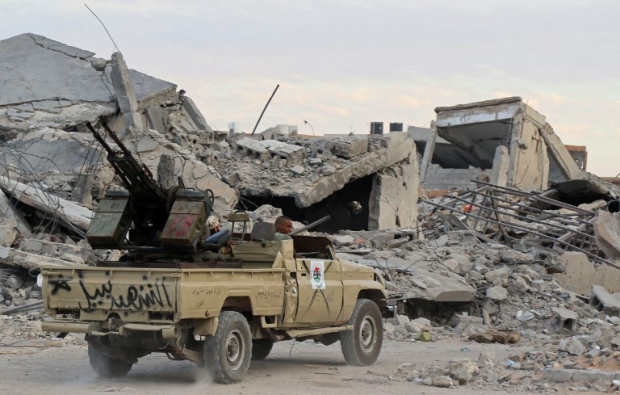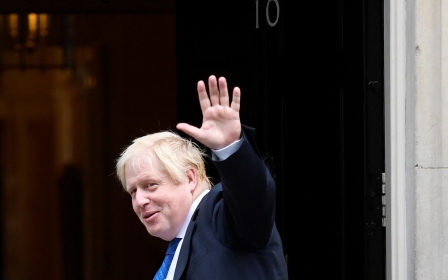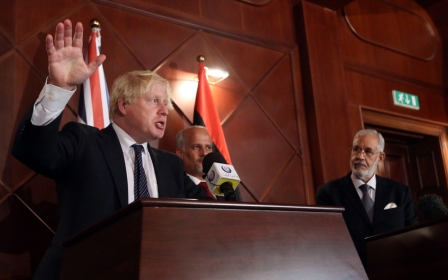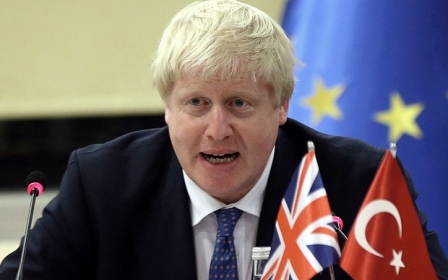Boris Johnson rejects new calls to quit over Sirte 'dead bodies' gaffe
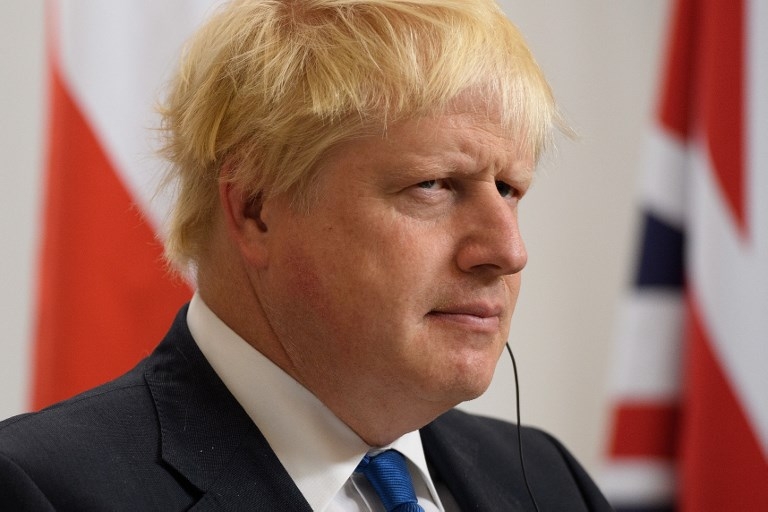
British Foreign Secretary Boris Johnson on Tuesday rebuffed fresh calls to apologise or quit over his widely condemned comments in which he suggested that Sirte could be a new Dubai once the "dead bodies" had been cleared up and accused opposition politicians of trivialising the security situation in Libya.
Answering parliamentary questions, Johnson was challenged by Labour MP Fabian Hamilton to respond to comments by a senior Libyan politician who told Middle East Eye that Johnson had "dishonoured the sacrifice" of up to 750 Libyans who died fighting to recapture the central Libyan city from Islamic State (IS) group militants.
"It is insensitive to talk about those bodies as if they are some sort of obstacle to Sirte becoming a destination for British businessmen to enjoy their beer and sunbathing,” Guma El-Gamaty, the head of the Libyan Taghyeer Party and a member of the Libya Political Dialogue group, told MEE.
But Johnson, replied: "If I may say so I think by far the best thing that this government can do is get behind the plan that this government is promoting to bring security to Libya, security to Sirte and do honour to all those who fell fighting Daesh [IS] in Libya. That is the the way forward for that country and that is the course we are promoting."
Responding to other questions from Scottish Nationalist Party MPs in which he was urged to apologise or resign for his remarks, Johnson said: "I don't believe that political point scoring of this kind or trivialising or ignoring the reality of the security situation in Sirte does any favours to the people of Libya.
"What they want is to see the international community concerted and coordinated around the [United Nations] plan so that their children have the opportunities that are currently denied that generation in Libya. That is what we are working to achieve."
Libya has been wracked by conflict and instability since the 2011 uprising in which longtime leader Muammar Gaddafi was overthrown and killed. The UN currently backs the Tripoli-based Government of National Accord (GNA), but the GNA's authority is not recognised in the east of the country where a rival government is backed by the Libyan National Army of General Khalifa Haftar.
While the UK backs UN efforts to reunite the country, Johnson in August met Haftar in the eastern city of Benghazi and said that he had "a role to play in the political process".
"They've got a brilliant vision to turn Sirte, with the help of the municipality of Sirte, to turn it into the next Dubai," Johnson said."The only thing they've got to do is clear the dead bodies away and then we will be there."
But the comment provoked anger among Libyan politicians on both sides of the country's divide.
"Libyans fought and died fighting Islamic State in Sirte, and thousands more were injured. Many remain where they fell because of the nature of the fighting and the number of collapsed buildings and tunnels," El-Gamaty told MEE.
"The very least he should do is apologise to the families of the young men who died. He should retract those comments".
"He obviously lacks a deep and real understanding of Libya," he added.
A former British ambassador to Libya also criticised Johnson for his “inability to keep his mouth shut”.
Oliver Miles said: “We have already seen reaction in Libya suggesting that these dead bodies are people who had fought Islamic State and they deserve to be honoured.
“And it’s exaggerated to say there are lots and lots of companies ready to pour into Libya. It was a silly thing to say. Loose lips in diplomacy don’t pay. We are some way from major UK firms investing in Libya."
Johnson, who is considered a potential rival to current Prime Minister Theresa May, was also mildly rebuked by May's office which said: "We did not feel it was an appropriate choice of words.”
Middle East Eye propose une couverture et une analyse indépendantes et incomparables du Moyen-Orient, de l’Afrique du Nord et d’autres régions du monde. Pour en savoir plus sur la reprise de ce contenu et les frais qui s’appliquent, veuillez remplir ce formulaire [en anglais]. Pour en savoir plus sur MEE, cliquez ici [en anglais].


